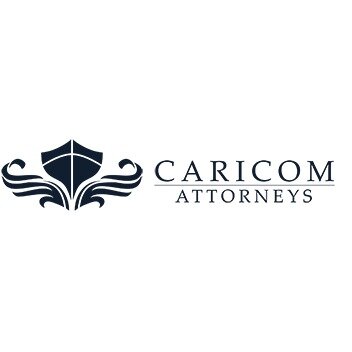Best Private Client Lawyers in Grenada
Share your needs with us, get contacted by law firms.
Free. Takes 2 min.
Or refine your search by selecting a city:
List of the best lawyers in Grenada
About Private Client Law in Grenada
Private client law in Grenada covers legal matters that impact individuals and families, especially in areas relating to personal wealth, family relationships, property ownership, succession, and estate planning. These laws are designed to help clients preserve, protect, and transfer their assets according to their wishes, ensuring that family, business, and personal concerns are addressed within Grenada’s legal system. Private client lawyers offer expert guidance on wills, trusts, probate, tax planning, property law, and other matters affecting personal finances and family arrangements.
Why You May Need a Lawyer
There are many situations in which hiring a private client lawyer in Grenada is advisable. Common reasons include:
- Drafting or updating a will to ensure your assets are distributed according to your wishes - Creating trusts for family members or charitable purposes - Navigating probate and administering estates when a loved one passes away - Managing tax exposure and planning for the future - Buying, selling, or transferring property, especially where family interests or inheritance issues are involved - Appointing powers of attorney for situations where you may become incapacitated - Resolving family disputes relating to inheritance or property - Advising on guardianship or custody matters for minors or vulnerable adults - Protecting personal assets and ensuring privacy - International estate planning if you have assets or family members overseas
Local Laws Overview
Grenada’s private client laws are influenced by English common law, but they are subject to local statutes and regulations. Key aspects of the legal framework include:
- Wills and Probate: Individuals can make wills to determine asset distribution. If someone dies without a valid will, the Intestates Estates Act sets out how their estate is distributed. Probate is required to validate a will and manage estate administration.
- Trusts: Grenadian law recognizes trusts, commonly used for estate planning, protecting family wealth, or charitable purposes. Trust law imposes strict duties on trustees and offers protections for beneficiaries.
- Property Law: Title to property and inheritance are governed by the Deeds and Land Registry Act and related statutes. Foreign nationals have some restrictions when acquiring land, but otherwise, property laws aim to ensure transparent and legal transfer of titles.
- Family Law: Matters such as marriage, divorce, and child custody can impact estate planning and succession.
- Taxation: Grenada does not levy inheritance tax, but there are property transfer taxes and other considerations that may apply when assets are transferred.
- Capacity and Powers of Attorney: Grenadian law allows individuals to grant powers of attorney, including enduring powers for those concerned about future incapacity.
Frequently Asked Questions
What is the probate process in Grenada?
Probate in Grenada involves submitting the deceased’s will to the High Court to be validated. The court confirms the executor’s authority to collect and distribute the estate according to the will. If no will exists, the process is referred to as letters of administration, and the law dictates the distribution of assets.
Do I need a will if I already have a trust?
Yes, it is generally advisable to have a will even if you have a trust. The will ensures that any assets not placed in the trust are distributed according to your wishes. A “pour over” will can direct remaining assets into your trust.
Can a non-resident own property in Grenada?
Non-residents can own property in Grenada, but they may need to obtain an Aliens Landholding Licence before purchasing real estate. There are specific procedures and potential tax implications for non-residents to consider.
What happens if I die without a will in Grenada?
If you die without a will (intestate), Grenada’s Intestates Estates Act determines who inherits your assets. Typically, this includes spouses, children, and other close relatives, following a prescribed order of priority.
Are there any inheritance taxes in Grenada?
There is no inheritance tax or estate tax in Grenada. However, some transfers, such as property, may trigger other taxes like stamp duty or transfer tax.
How do I challenge a will in Grenada?
A will can be challenged if there are grounds such as lack of testamentary capacity, undue influence, fraud, or failure to follow legal requirements for signing. Legal advice should be sought promptly if you wish to contest a will.
What is a power of attorney, and why is it important?
A power of attorney allows you to appoint someone to manage your financial or personal affairs if you become unable to do so yourself. It is especially important for planning ahead in case of illness or incapacity.
How can I minimize disputes among beneficiaries?
Clear and specific estate planning with the help of a qualified lawyer reduces the likelihood of disputes. Regularly updating your will, communicating your wishes, and considering trusts can also help prevent conflicts.
Can foreign wills be recognized in Grenada?
Grenada may recognize foreign wills, especially those made in countries with similar legal systems, but certain legal requirements must be met. Legal advice should be obtained to ensure proper execution and validity.
Who can serve as executor or trustee in Grenada?
Any competent adult may serve as executor or trustee. It is common to appoint family members, trusted friends, or professional advisers. Consideration should be given to the complexity of the estate and the suitability of the chosen individual.
Additional Resources
- High Court Registry and Deeds Department: Handles probate, land, and related records. - Grenada Bar Association: Provides a list of qualified legal practitioners in Grenada. - Ministry of Legal Affairs: Responsible for legislative information and public legal resources. - Local banks and trust companies: Often offer specialized services in trust and estate administration. - Community legal aid clinics: Some may offer free or low-cost advice on private client matters.
Next Steps
If you require assistance with a private client matter in Grenada:
- Gather all relevant documents, such as wills, property deeds, financial information, and identification. - Write down your questions and concerns to discuss during your consultation. - Contact a reputable lawyer or law firm specializing in private client services. Use the Grenada Bar Association or local recommendations to find a suitable adviser. - Schedule an initial consultation to assess your needs and understand your options. - Carefully review any legal documents before signing and ask your lawyer for clarification if needed. - Stay informed of local law changes and update your estate plans as your circumstances change.
With careful planning and the support of a knowledgeable legal adviser, you can ensure that your personal, family, and financial interests are protected according to Grenada’s law.
Lawzana helps you find the best lawyers and law firms in Grenada through a curated and pre-screened list of qualified legal professionals. Our platform offers rankings and detailed profiles of attorneys and law firms, allowing you to compare based on practice areas, including Private Client, experience, and client feedback.
Each profile includes a description of the firm's areas of practice, client reviews, team members and partners, year of establishment, spoken languages, office locations, contact information, social media presence, and any published articles or resources. Most firms on our platform speak English and are experienced in both local and international legal matters.
Get a quote from top-rated law firms in Grenada — quickly, securely, and without unnecessary hassle.
Disclaimer:
The information provided on this page is for general informational purposes only and does not constitute legal advice. While we strive to ensure the accuracy and relevance of the content, legal information may change over time, and interpretations of the law can vary. You should always consult with a qualified legal professional for advice specific to your situation.
We disclaim all liability for actions taken or not taken based on the content of this page. If you believe any information is incorrect or outdated, please contact us, and we will review and update it where appropriate.
Browse private client law firms by service in Grenada
Grenada Attorneys in related practice areas.
Browse private client law firms by city in Grenada
Refine your search by selecting a city.











